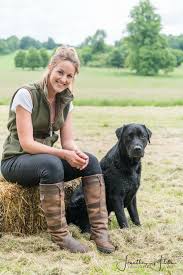Discover Professional Puppy Dog Training Near You
Are you a proud owner of a new puppy looking for expert guidance on training your furry friend? Look no further! Finding quality puppy dog training near you is essential for setting the foundation of a well-behaved and happy canine companion.
Professional puppy dog trainers offer tailored training programs designed to address your puppy’s specific needs and behaviours. From basic obedience commands to socialisation skills, these experts can help you navigate the challenges of raising a well-adjusted and obedient pup.
By enrolling your puppy in a local training programme, you not only invest in their future behaviour but also strengthen the bond between you and your four-legged friend. Positive reinforcement techniques used by experienced trainers can help build trust and communication, leading to a harmonious relationship with your puppy.
When searching for puppy dog training near you, consider factors such as trainer credentials, training methods, class size, and location. Reading reviews from other pet owners can also provide valuable insights into the quality of service offered by different training facilities.
Remember, early training is key to preventing behavioural issues in adult dogs. Start your puppy off on the right paw by enrolling them in a reputable training programme near you today!
For more information on professional puppy dog training services in your area, reach out to local trainers or pet care facilities. Your puppy deserves the best start in life, and proper training is the first step towards a happy and well-behaved companion.
Essential Insights into Local Puppy Training: Key Commands, Golden Rules, and Age-Specific Techniques
- What are the 7 most important dog commands?
- What are the 5 golden rules of dog training?
- What age should a puppy start training?
- How do you train a 2 year old dog?
- How can I train my puppy dog?
What are the 7 most important dog commands?
When it comes to puppy dog training, mastering the seven most important dog commands is crucial for fostering a well-behaved and obedient canine companion. These commands include “sit,” “stay,” “come,” “down,” “heel,” “leave it,” and “drop it.” Teaching your puppy these fundamental commands not only sets the groundwork for good behaviour but also enhances communication between you and your furry friend. Consistent training and positive reinforcement techniques can help your puppy understand and respond to these commands effectively, ensuring a harmonious relationship built on trust and respect. If you’re looking for expert guidance on teaching these essential commands to your puppy, consider seeking professional puppy dog training near you for personalised support and advice.
What are the 5 golden rules of dog training?
When seeking puppy dog training near you, it is essential to understand the five golden rules of dog training that form the foundation of a successful training programme. These rules include consistency, patience, positive reinforcement, clear communication, and practice. Consistency in applying training methods helps reinforce desired behaviours, while patience is key in allowing your puppy to learn at their own pace. Positive reinforcement, such as treats or praise, encourages good behaviour and strengthens the bond between you and your pet. Clear communication through cues and commands helps your puppy understand what is expected of them. Finally, regular practice and repetition are crucial for solidifying new skills and behaviours. By adhering to these golden rules, you can set your puppy up for a lifetime of obedience and companionship.
What age should a puppy start training?
Determining the right age to start training your puppy is a common query among new pet owners seeking guidance on puppy dog training near them. While opinions may vary among experts, it is generally recommended to begin training as early as possible. Puppies are like sponges during their early developmental stages, making it an ideal time to instil good habits and socialisation skills. Basic obedience training can commence as early as 8 weeks old, focusing on simple commands and positive reinforcement techniques. Starting training at a young age not only helps shape your puppy’s behaviour but also strengthens the bond between you and your furry companion. Remember, patience, consistency, and gentle guidance are key when embarking on this exciting journey of puppy training.
How do you train a 2 year old dog?
Training a 2-year-old dog requires patience, consistency, and understanding of the animal’s behaviour. While it is commonly believed that you can’t teach an old dog new tricks, this is far from the truth. With positive reinforcement techniques and a clear communication style, it is entirely possible to train a 2-year-old dog effectively. Start by establishing clear boundaries and expectations, rewarding good behaviour, and redirecting unwanted behaviours. Consistency in training methods and regular practice sessions are key to helping your older dog learn new commands and behaviours. Remember that every dog is unique, so tailor your training approach to suit your dog’s personality and learning style for the best results.
How can I train my puppy dog?
Training your puppy dog is a rewarding experience that requires patience, consistency, and positive reinforcement. To train your puppy effectively, start with basic commands such as sit, stay, come, and heel. Use treats and praise to reward good behaviour and establish a clear communication channel with your pup. Socialisation is also crucial for your puppy’s development, so expose them to different environments, people, and animals from an early age. Consistent training sessions, short and frequent throughout the day, will help reinforce desired behaviours and build a strong bond between you and your furry companion. Remember that every puppy is unique, so be patient and understanding as you guide them through their training journey.

